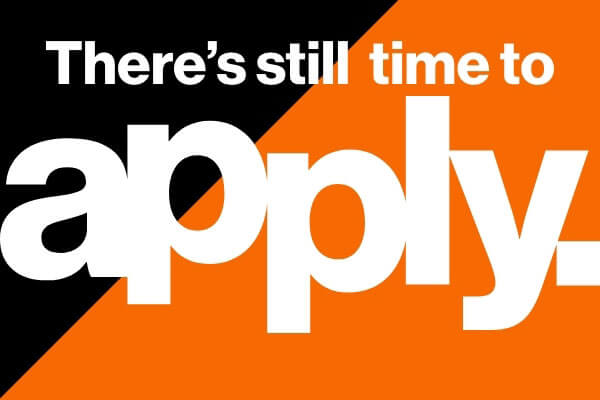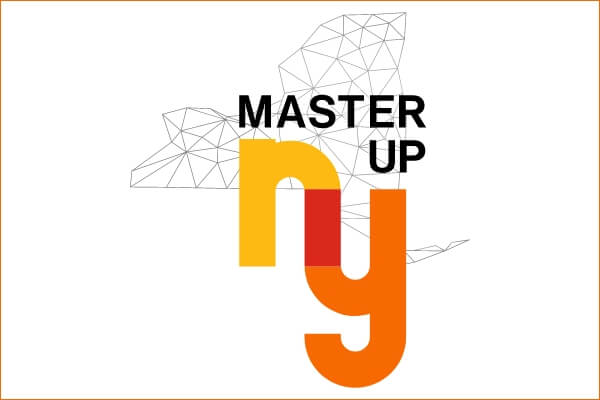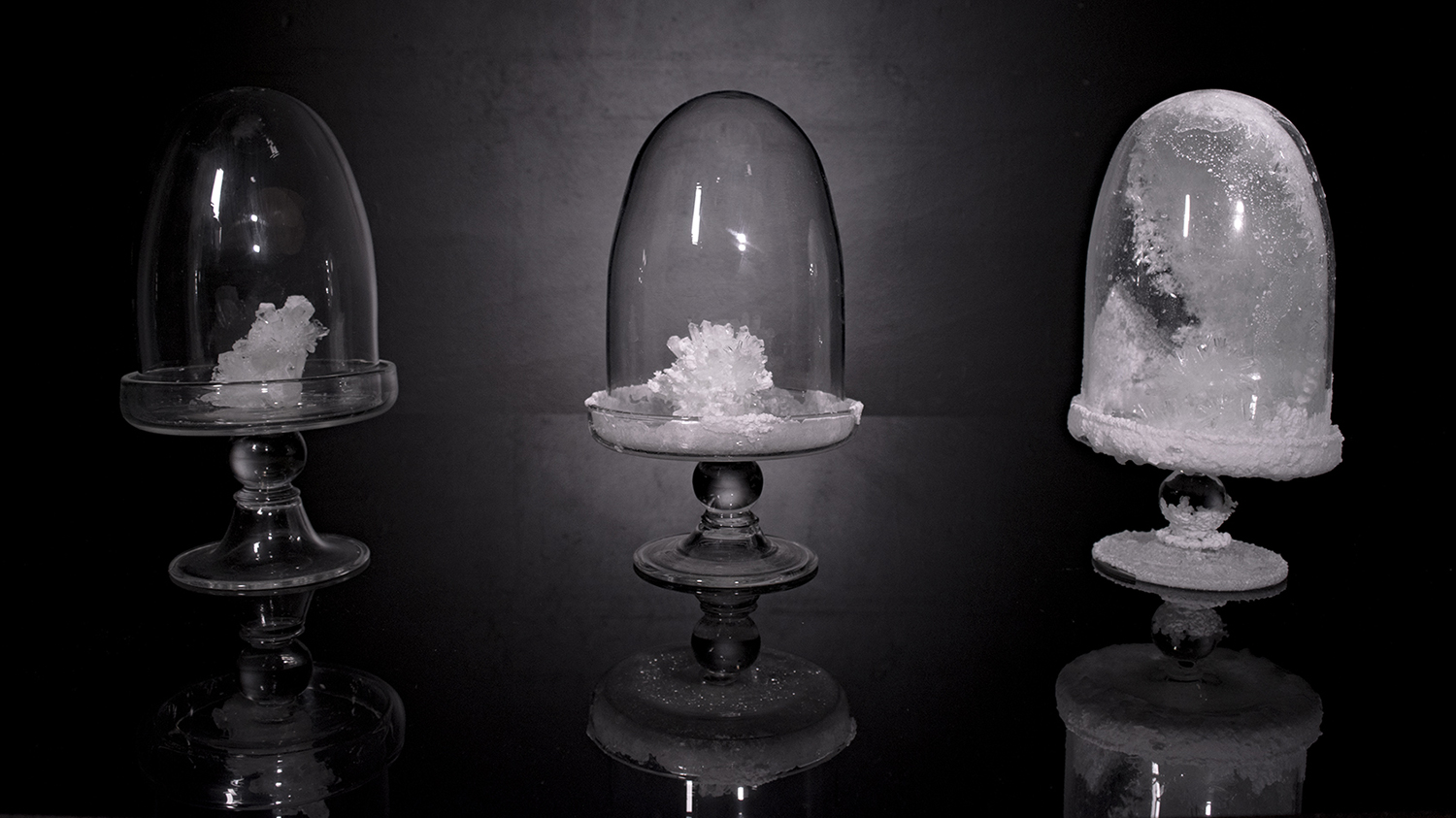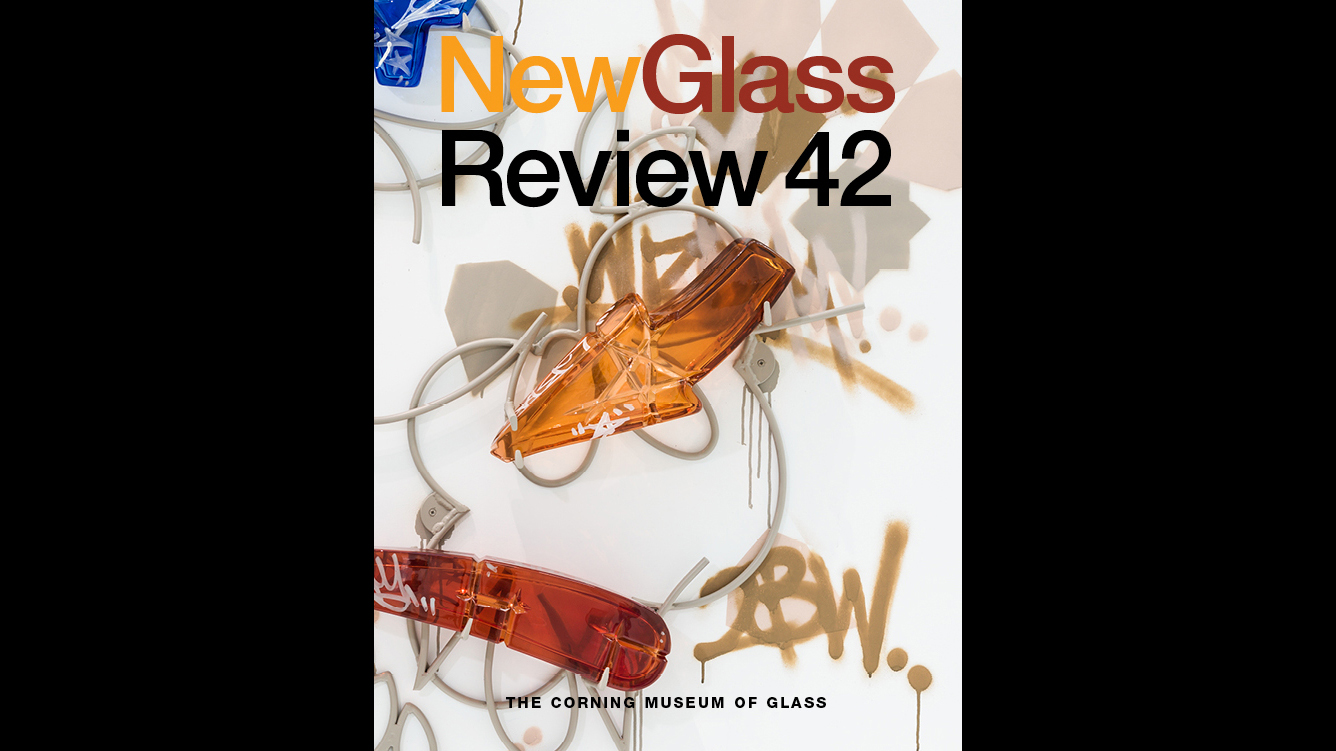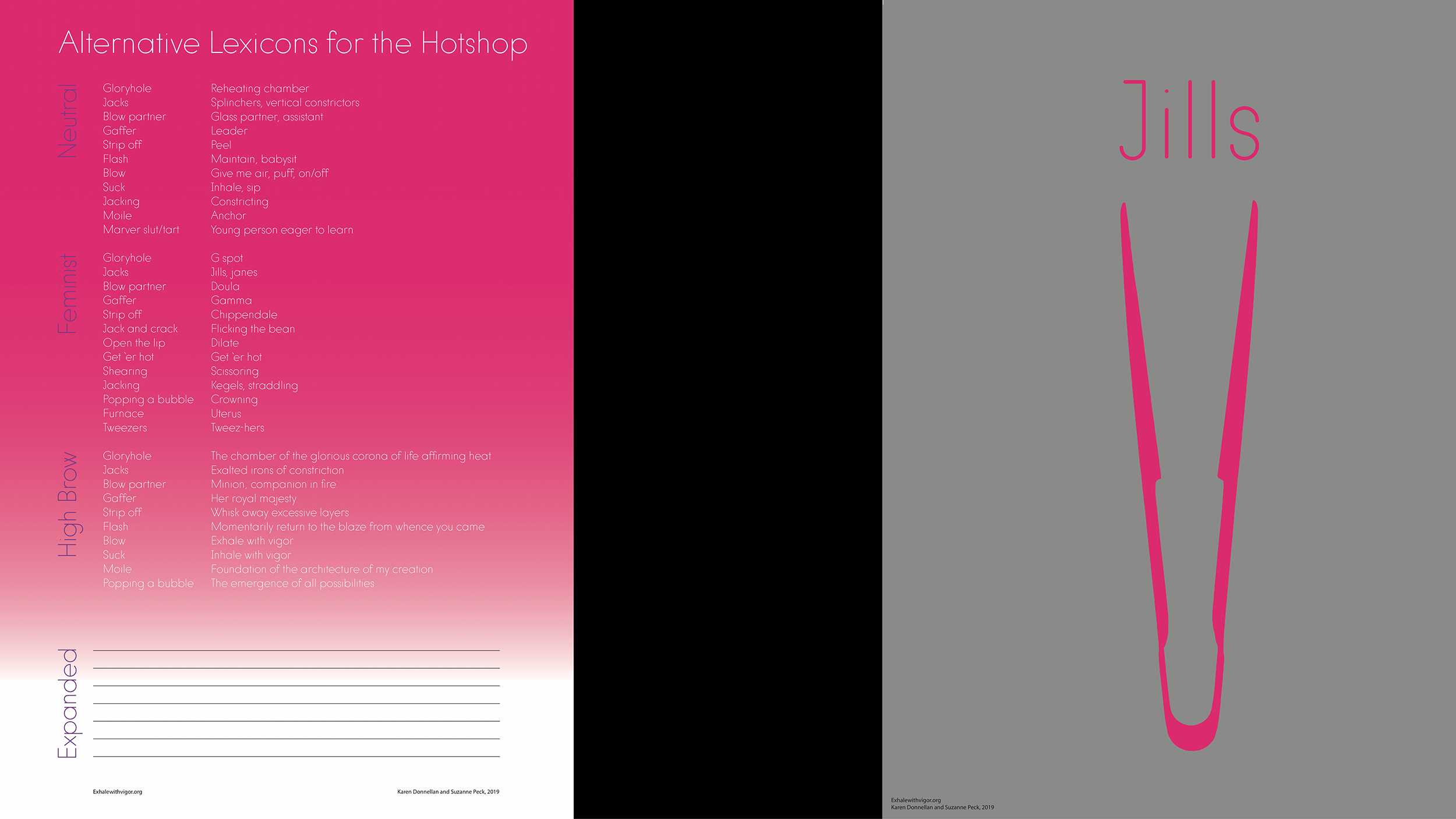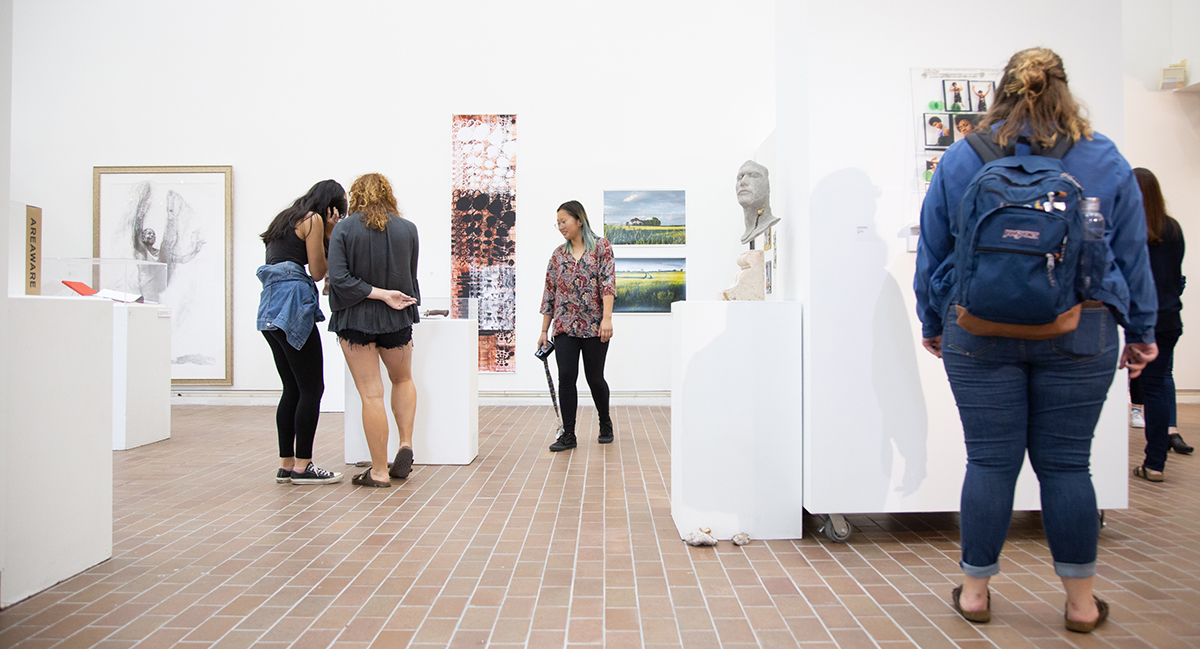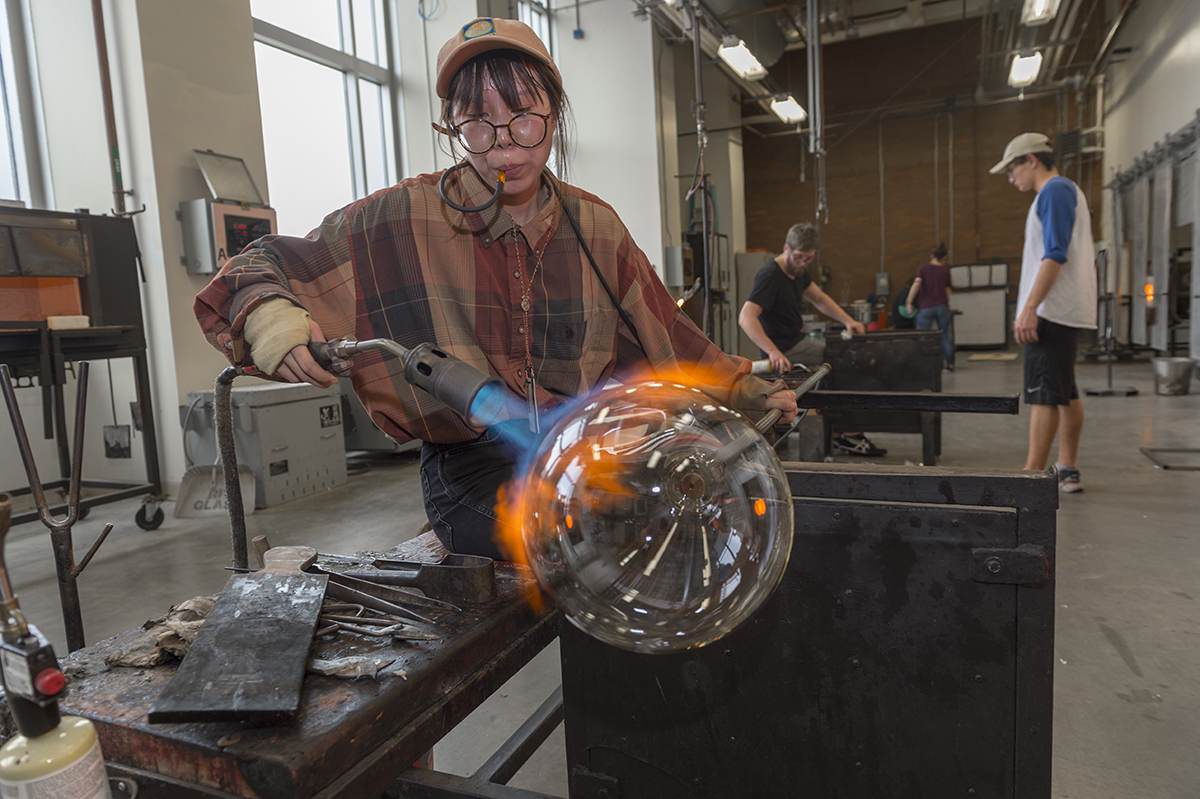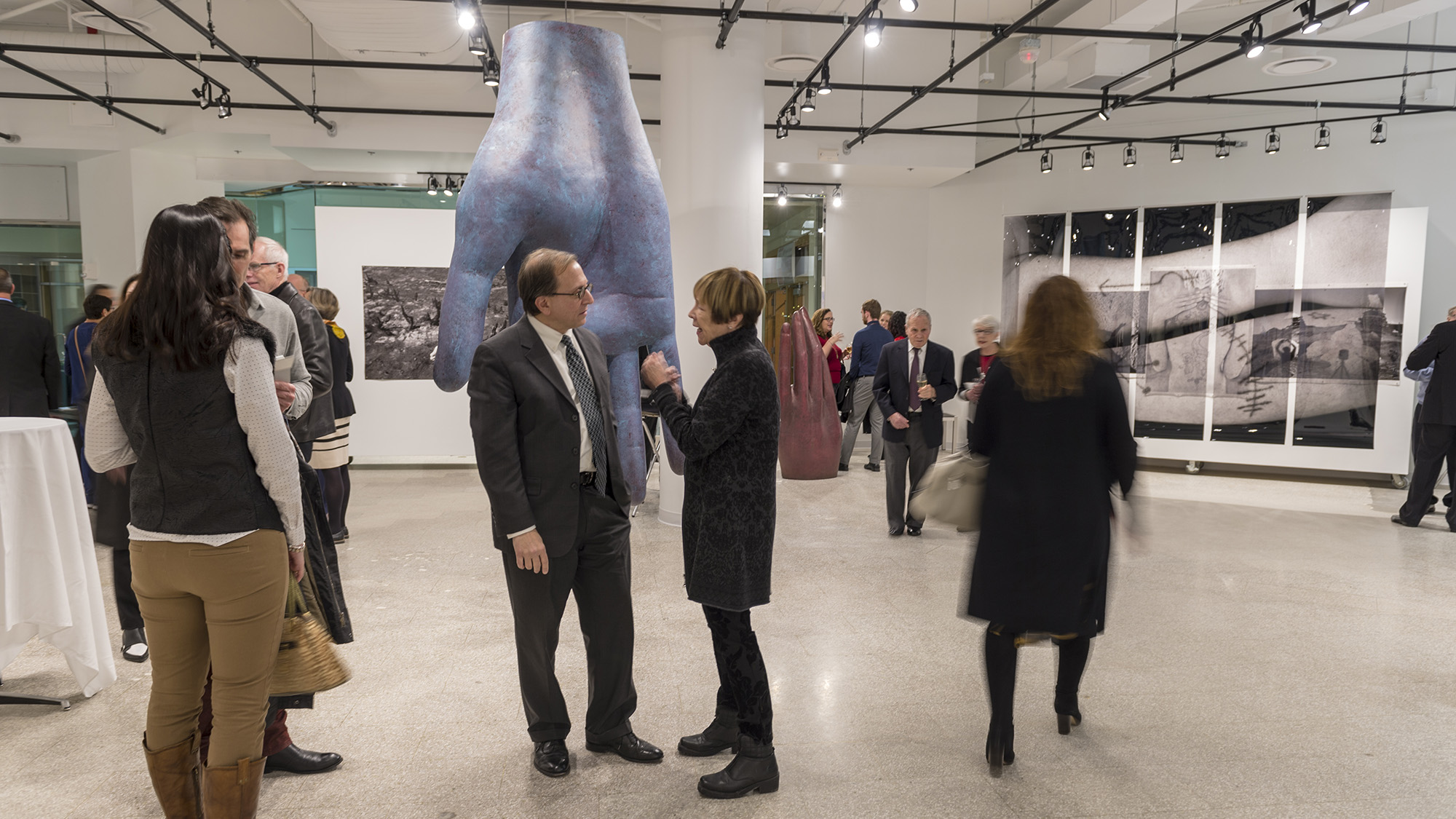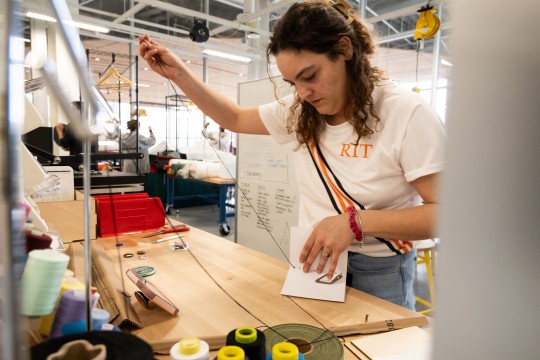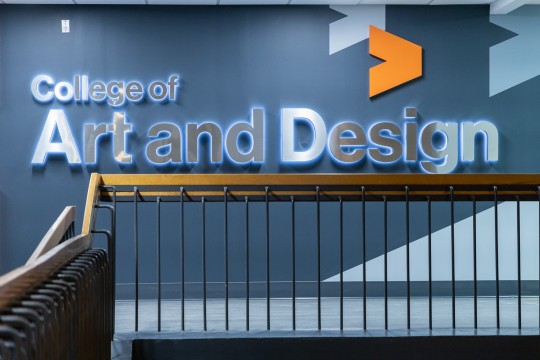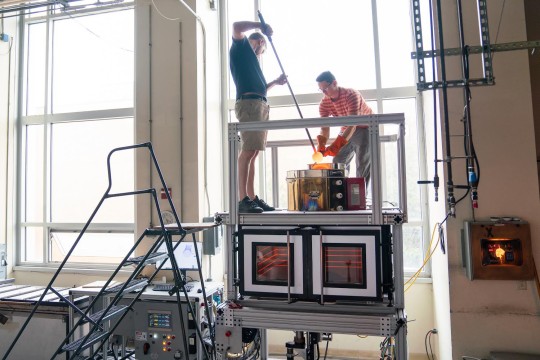Glass Master of Fine Arts Degree


Glass
Master of Fine Arts Degree
- RIT /
- Rochester Institute of Technology /
- Academics /
- Glass MFA
Request Info about graduate study
Visit
Apply
School for American Crafts
A glass degree that enables you to dive deeper into your examination of glass as you develop your artistic expression through research, experimentation, and in-depth critiques.
Overview for Glass MFA
Develop your personal creative voice through intensive research, discussion, critique, and experimentation in glass. In this glassblowing master’s degree you are given full access to a complete glass facility and individual studio space. Graduate studio courses, seminar courses, and in-depth critiques give you a deeper understanding of the craft of glass as you design pieces that flourish your personal expression.
Glassblowing Classes and More
The MFA in glass is a two-year program of study. An individual studio space serves to strengthen your technique and practice in designing glass artwork that reflects your personal expression of the medium. Graduate studio courses, seminar courses, and in-depth critiques are offered in conjunction with thesis planning and implementation to provide you with a deep understanding of glass. In addition to course work and creative production, you are exposed to a broad range of critical issues related to the conception and production of art, to inspire and provoke critical reflection and facilitate the development of a thesis exhibition and supporting documentation.
World-Class Glass Hot Shop and Facilities
You'll spend time creating in a range of top facilities designed for you to explore, learn, and develop your glass blowing and flameworking techniques. Many glassblowing classes take place in the Glass Hot Shop, where you will physically work with glass in its molten state in solid working, glass-blowing, and hot casting. In the Glass Flameworking Studio you'll work intimately with glass rod and tubing at the torch. The Glass Cold Shop is a studio designated for processes that alter glass after it has been annealed. Each student is also assigned a Glass Workspace, designated areas for our advanced-level glass majors to have their own personal studio space to support the development of their individual research interests and creative work.
Studio Residency Program
The School of Art and the School for American Crafts are seeking candidates interested in pursuing glass-related research while contributing to the creative community of the glass program and the College of Art and Design. Learn more about the Glass Studio Residency Program, including details on how to apply.
Students are also interested in: Fine Arts Studio MFA, Ceramics MFA
Join us for Fall 2024
Many programs accept applications on a rolling, space-available basis.
30% Tuition Scholarship for NY Residents and Graduates
Now is the perfect time to earn your Master’s degree. If you’re a New York state resident with a bachelor’s degree or have/will graduate from a college or university in New York state, you are eligible to receive a 30% tuition scholarship.
Careers and Experiential Learning
Typical Job Titles
| Glass Artist | Freelance Designer |
| Professional Fabricator |
Cooperative Education and Internships
What makes an RIT education exceptional? It’s the ability to complete relevant, hands-on career experience. At the graduate level, and paired with an advanced degree, cooperative education and internships give you the unparalleled credentials that truly set you apart. Learn more about graduate co-op and how it provides you with the career experience employers look for in their next top hires.
Co-ops and internships take your knowledge and turn it into know-how. Your art and design co-ops will provide hands-on experience that enables you to apply your artistic capabilities in dynamic professional settings while you make valuable connections between classwork and real-world applications.
Cooperative education, internships, and other experiential learning opportunities are strongly encouraged for graduate students in the MFA in glass.
Creative Industry Days
Connect with Design Industry Leaders
RIT’s Office of Career Services and Cooperative Education hosts Creative Industry Days, which connects students majoring in art, design, film and animation, photography, and select computing majors with companies, organizations, creative agencies, design firms, and more. Creative Industry Days are a series of events that allow you to network with company representatives and interview directly for open co-op and full-time employment positions.
Featured Work
'To Be Decayed I'
Rinoi Imada
"Glassblowing is the one of essential parts of my art practice. It is labor intensive, and I need to have good communications with people who help me. However, I have a trauma to create works ...
Faculty featured in 'New Glass Review'
David Schnuckel, Suzanne Peck
RIT glass faculty Suzanne Peck and David Schnuckel were both selected for the 42nd issue of New Glass Review, the Corning Museum of Glass’ flagship publication showcasing 100 timely, innovative glass...
Rewriting the language of glass art
Suzanne Peck
Suzanne Peck, lecturer of glass, was featured in "New Glass Now," a group exhibition organized by the Corning Museum of Glass that features innovative works by artists and collectives around...
Featured Profiles
Artist Interview: Madeline Rile Smith '20
RIT City Art Space's Artist Short Sesh features conversations with artists in the College of Art and Design about their work. The artist interview series, started by Gallery Director John Aäsp,...
Molten Glass 3D Printer
RIT's glass program hosted the artist/designer/engineer team behind Evenline as artists in residence for the spring 2023 semester. The innovative company stationed its only-one-of-its-kind molten...
Embracing creativity and exploration
Alex Lobos, Gregory Halpern, Elizabeth Kronfield, Todd Jokl
The College of Art and Design at RIT offers distinctive graduate degrees that combine the best of art, design, creativity and technology. Our diverse portfolio of graduate program offerings includes...
Curriculum for 2023-2024 for Glass MFA
Current Students: See Curriculum Requirements
Glass, MFA degree, typical course sequence
| Course | Sem. Cr. Hrs. | |
|---|---|---|
| First Year | ||
| CGLS-601 | Glass Graduate Studio: Concepts This course is designed to deepen the individual’s understanding and connection to concepts in contemporary glass and art. Course content will include a chosen thematic focus relevant to issues in the contemporary art conversation that will influence student development and the course’s conversation through various assignments and group activities. Readings, group discussion, written responses, and material research will culminate in self-directed projects based on a proposed topic of student investigation. Students will explore research themes through conversation, presentation, and workshops. Additionally, this course will host visiting artists who will contribute through lectures, studio visits and activities pertinent to their practices. This course may be retaken for credit. **Fee: There is a materials fee required for this course and an additional course fee applied via student account.** Studio 6 (Fall, Spring). |
6 |
| CGLS-602 | Glass Graduate Studio: Practice This course is designed to challenge the individual student’s interests, background and capabilities to support a reinvigorated approach to their thinking and making in relation to glass. Course content will include exploration of technique and experimentation through student designed and implemented skill exchanges. Glass studios will be investigated in four-week blocks. Each block will tackle a different studio/technique/material question and will be supported by studio visits, discussions, and punctuated by critique. This course will be retaken for credit and leads to the master’s thesis, proposed by the student and approved by the faculty. **Fee: There is a materials fee required for this course and an additional course fee applied via student account.** Studio 6 (Fall, Spring). |
6 |
| STAR-701 | Technology in the Studio This course will introduce a contemporary technology used by the course instructor in their studio practice. Students will be encouraged to investigate how this technology may be applied in their making process. The subjects offered in the course will vary according to the faculty teaching the class. The course can be taken multiple times with faculty permission. Studio 6 (Fall or Spring). |
3 |
| STAR-702 | Studio Art Research This course will prepare graduate students for the written component of the thesis. Course content will cover defining research in the arts, arts based research, research through practice, critical judgment, writing strategically and critically for reflective thinking and scholarly dissemination. At the completion of this course students will be able to write a thesis proposal addressing a research question or direction along with objectives, context, and methods. (Prerequisites: STAR-701 or equivalent course.) Lecture 3 (Spring). |
3 |
| STAR-714 | Ideation and Series Creative flow, having an endless stream of ideas, alternatives, and choices for solutions, helps creative work evolve and reach more advanced levels. In this course students develop appropriate skills and strategies to generate ideas and develop them effectively into a cohesive body of work. (Prerequisites: This course is restricted to students in the FNAS-MFA or GLASS-MFA
or METAL-MFA or CCER-MFA or WOOD-MFA programs.) Studio 6 (Fall). |
3 |
Open Electives |
6 | |
Professional Elective |
3 | |
| Second Year | ||
| CGLS-601 | Glass Graduate Studio: Concepts This course is designed to deepen the individual’s understanding and connection to concepts in contemporary glass and art. Course content will include a chosen thematic focus relevant to issues in the contemporary art conversation that will influence student development and the course’s conversation through various assignments and group activities. Readings, group discussion, written responses, and material research will culminate in self-directed projects based on a proposed topic of student investigation. Students will explore research themes through conversation, presentation, and workshops. Additionally, this course will host visiting artists who will contribute through lectures, studio visits and activities pertinent to their practices. This course may be retaken for credit. **Fee: There is a materials fee required for this course and an additional course fee applied via student account.** Studio 6 (Fall, Spring). |
6 |
| CGLS-602 | Glass Graduate Studio: Practice This course is designed to challenge the individual student’s interests, background and capabilities to support a reinvigorated approach to their thinking and making in relation to glass. Course content will include exploration of technique and experimentation through student designed and implemented skill exchanges. Glass studios will be investigated in four-week blocks. Each block will tackle a different studio/technique/material question and will be supported by studio visits, discussions, and punctuated by critique. This course will be retaken for credit and leads to the master’s thesis, proposed by the student and approved by the faculty. **Fee: There is a materials fee required for this course and an additional course fee applied via student account.** Studio 6 (Fall, Spring). |
6 |
| STAR-706 | Business Practices for Studio Artists This class is devoted to business issues that artists must address including portfolio management, pricing and marketing strategies, and public relations for pursuit of a professional career as studio artists. Financial and communication skills are highlighted as are networking skills for the advancement of an artist’s work. (Prerequisites: This course is restricted to students in the FNAS-MFA or GLASS-MFA
or METAL-MFA or CCER-MFA or WOOD-MFA programs.) Lecture 3 (Spring). |
3 |
| STAR-718 | Research Methods and Publication Students will conduct research appropriate for individual thesis directions, incorporate that research into writing, analyze and review their thesis body of work then produce and publish their written thesis document. (Prerequisites: STAR-702 or equivalent course.) Lecture 3 (Spring). |
3 |
| STAR-790 | Research and Thesis This is the first of two courses designed to advance a student towards completion of their thesis. Students will work independently on their approved proposal while meeting on a regular basis with their committee chair. Students are required to meet at least twice with their full committee during the semester. (Prerequisites: STAR-702 or equivalent course.) Thesis (Fall). |
3 |
| STAR-890 | Thesis For this final thesis course students continue working with their committee to evaluate work produced, and select the work to be exhibited. In addition, students will work with gallery coordinators and curators to install and exhibit their final body of work. Students are expected to defend their work to the committee through an oral defense and a written document. (Prerequisite: STAR-790 or equivalent course.) Thesis (Spring). |
6 |
Open Elective |
3 | |
| Total Semester Credit Hours | 60 |
|
Professional Electives
| Course | |
|---|---|
| ARTH-600+ | Any ARTH 600 level course or above This course explores the history of contemporary art and visual culture from postmodernism to the present. We will focus on major artistic movements such as Pop Art, Minimalism, Conceptualism, Performance Art, and Relational Aesthetics. Along with and inseparable from aesthetics and media, we will chart the ways in which class, gender, race, and sexual inequality have figured into the major aesthetic movements of our time. By reading theory and criticism, discussing artworks across media forms, and researching artistic movements in context, students will examine art since the 1960s and its connections to cultural history. Graduate students will complete a research project and class presentation in addition to the writing assignments and discussion expected in the undergraduate section. Lecture 3 (Spring). |
| IDEA-705 | Thinking About Making: The Practice of Art in a Global Society The course seeks to bridge the gap between studio practice and contemporary art history. Course content will explore current work and ask questions about what is art, who is the audience, what is “our” art making practice, and how does that fit within the larger context of the current state of the global art world. How do we measure success and artistic failure? The course emphasizes observation, critical analysis, and written interpretation. Lecture 3 (Fall, Spring). |
| STAR-635 | Curating and Managing Art Spaces This course explores the roles of contemporary, traditional, and alternative art spaces through curatorial studies, exhibition evaluation and criticism. Student will consider gallery administration roles and supporting operations, and undertake site visitations and gallery research. Students will organize and install a final exhibition project in an approved exhibition venue. (This class is restricted to degree-seeking graduate students or those with permission from instructor.) Lecture 3 (Fall). |
| STAR-645 | Art Exhibition Critique This course will explore the role of the art exhibition and its effect on the discourse and practice of art. Course content will focus on: contemporary and historical exhibition studies, individual and group projects. Student will also conduct site visitations and evaluation, and critique work in the context of exhibition. (This class is restricted to degree-seeking graduate students or those with permission from instructor.) Lecture 3 (Fall). |
| STAR-758 | Studio Art Critique Students will explore the process of critical analysis of studio work. Content will focus on the structure and form of the critique process. They will discuss, defend, and interpret existing studio work as they work towards their thesis. Faculty led critiques will include studio visits for in depth analysis of works in progress. (Prerequisites: This course is restricted to students in the FNAS-MFA or GLASS-MFA
or METAL-MFA or CCER-MFA or WOOD-MFA programs.) Lecture 3 (Fall, Spring). |
| IDEA-776 | College Teaching This course will provide students with an introduction to the scholarship of teaching and learning in the university environment. Students will explore a range of perspectives on pedagogical practice, curriculum development and the assessment of learning in a studio, lab and seminar based classroom. Additionally, students will focus on ways that students learn, how learning can be improved, and different methods of conducting research into teaching and learning. Students are expected to write critical papers and essays, develop curriculum resources, and to participate in weekly small and large format discussion groups. Online technology is utilized in addition to lectures, videos, and other forms of media. Lecture 3 (Fall). |
Admissions and Financial Aid
This program is available on-campus only.
| Offered | Admit Term(s) | Application Deadline | STEM Designated |
|---|---|---|---|
| Full‑time | Fall | February 1 priority deadline, rolling thereafter | No |
Full-time study is 9+ semester credit hours. International students requiring a visa to study at the RIT Rochester campus must study full‑time.
Application Details
To be considered for admission to the Glass MFA program, candidates must fulfill the following requirements:
- Complete an online graduate application.
- Submit copies of official transcript(s) (in English) of all previously completed undergraduate and graduate course work, including any transfer credit earned.
- Hold a baccalaureate degree (or US equivalent) from an accredited university or college.
- A recommended minimum cumulative GPA of 3.0 (or equivalent).
- Submit a current resume or curriculum vitae.
- Submit a personal statement of educational objectives.
- Submit two letters of recommendation.
- Entrance exam requirements: None
- Submit a portfolio. View portfolio requirements.
- Writing samples are optional.
- Submit English language test scores (TOEFL, IELTS, PTE Academic), if required. Details are below.
English Language Test Scores
International applicants whose native language is not English must submit one of the following official English language test scores. Some international applicants may be considered for an English test requirement waiver.
| TOEFL | IELTS | PTE Academic |
|---|---|---|
| 79 | 6.5 | 56 |
International students below the minimum requirement may be considered for conditional admission. Each program requires balanced sub-scores when determining an applicant’s need for additional English language courses.
How to Apply Start or Manage Your Application
Cost and Financial Aid
An RIT graduate degree is an investment with lifelong returns. Graduate tuition varies by degree, the number of credits taken per semester, and delivery method. View the general cost of attendance or estimate the cost of your graduate degree.
A combination of sources can help fund your graduate degree. Learn how to fund your degree
Crafts Scholarships
Students applying to the MFA programs in ceramics, glass, furniture design, and metals and jewelry design may apply for a competitive, full-tuition scholarship. Learn more about the crafts scholarships, including eligibility, application requirements, and deadlines to apply.
Latest News
-
March 21, 2024
![A student binds a book in the textile makerspace in the SHED.]()
Innovation unleashed: students forge transdisciplinary projects at RIT's a2ru summit
Students leveraged the variety of makerspaces in RIT's brand-new SHED facility to create arts-integrative work responding to a theme of "Play."
-
August 30, 2023
![Wall signage with College of Art and Design in big, silver letters.]()
New School of Design director, faculty hires ready for 2023-24 academic year
The College of Art and Design welcomes new hires to its faculty roster while longtime faculty Alex Lobos assumes a role as director of the School of Design.
-
April 28, 2023
![Michael Stern and Ethan Townsend load their molten glass 3D printer with hot glass to begin the printing process.]()
RIT hosts glass 3D printer for research, multidisciplinary exploration
The first-of-its-kind technology is opening up new creative possibilities at RIT and beyond — it is working to fuel the future of sustainable manufacturing and even space travel.











